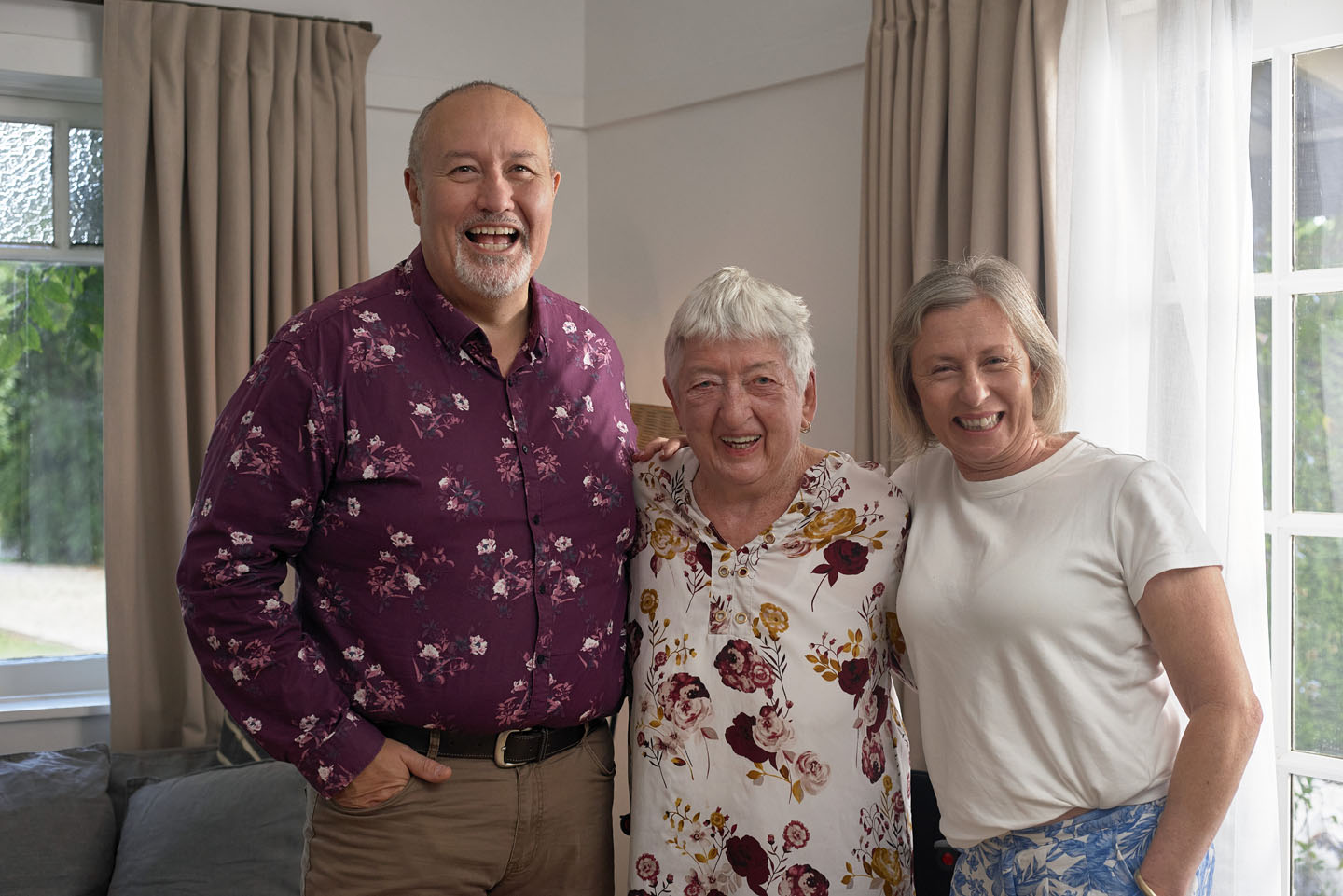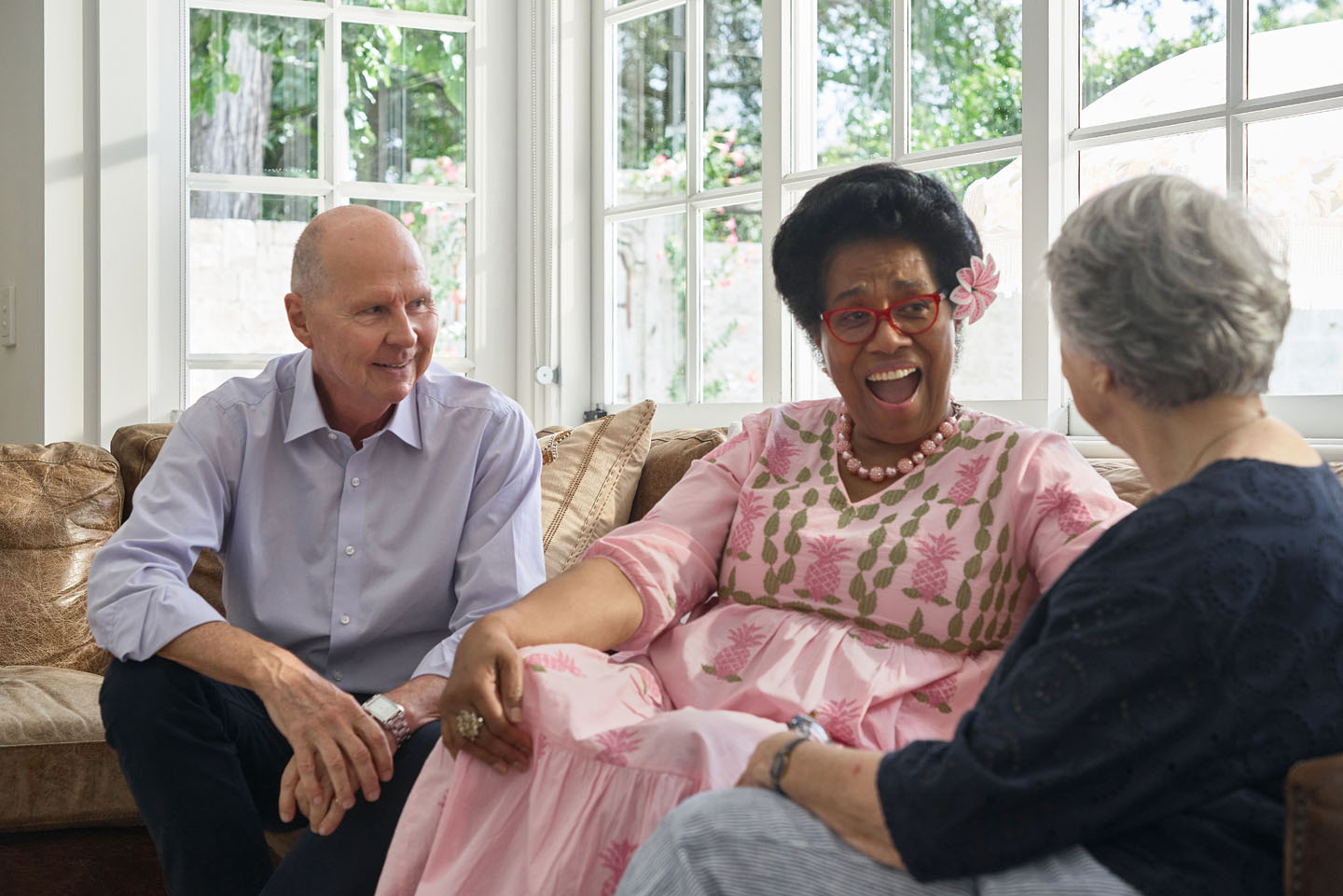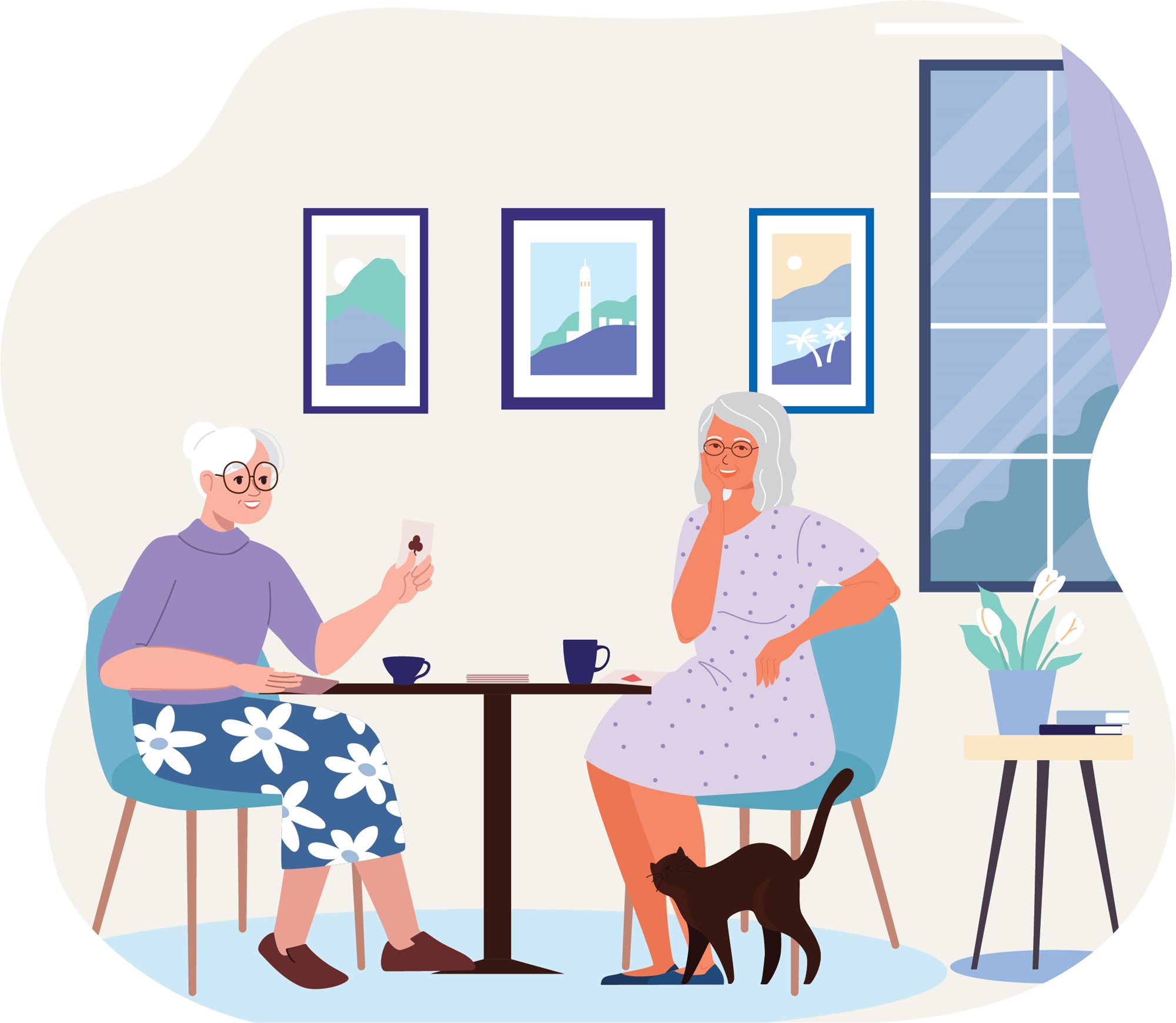3 Tips For Aged Care Residents Adjusting to Aged Care
Posted 31st May 2024 | 4 minute read
Written by Jesse Gramenz 

There's no '5 step guide' to adjusting to life in residential aged care. It just isn't that simple. But what we can do is continue to give you different perspectives and advice on what you can expect and how to manage it.
Moving into aged care can be *incredibly* difficult
There are almost too many different types of emotions and stressors that impact on the ability of someone to move into aged care without any issue.
It's heartbreaking!
- You've moved out of your family home
- Suddenly you're 'old'
- You're grieving either a physical change or mental change
- The entire family is grieving with you
But aged care isn't the end. In fact, residents who come into aged care after living in isolation can actually end up having an even better life. But before then, there are ways you can make that transition a little easier.
1. Keep regular contact with family (and work with the staff)
If possible, maintain as much contact as you can either with your family as the resident, or with your loved one as a family member. Whether it's phone calls, Facetime or in person visits from family members or friends, it doesn't matter. Regular contact is the best kind of contact.
This is because, even if it isn't true, it can be easy to feel like family have abandoned you if you're not seeing them regularly. All of us in that situation would feel the same way, or at least potentially have those thoughts creep in.
When we spoke with Sheridan, she explained what it was like when her mum Grace went into aged care. And while the transition was really tough, there were things she did that helped to make the transition a little easier.
Personally, what I would do in the initial parts, I would say every day I'd go and see mum. I'd come home from work, I'd go in and I'd see her.
But I think the facility's assistance in that was crucial in that knowing that I was coming outside of visiting hours. So, the nurses or staff would still let me in after hours just so that I could go in and see her and reassure her that I am not abandoning her now.
Other things along the lines of, I'd take in cakes and biscuits and things like that on the weekends for them to have a morning tea to try and encourage mom to have morning tea outside of her room in the dining room with other residents and things like that. Just little things like that to try and encourage her to integrate, I suppose to assimilate into the new environment that she's in because it's very difficult in the beginning for her and for me.
Sheridan, daughter of aged care resident Grace from Episode 3 of the Navigating Aged Care Podcast
The other side of this that Sheridan mentioned was working with the staff.
We can't say this enough: staff are there to help you.

Etta from St Vincent's Care Edgecliff brought life, love and joy to caring for Brian and Margaret's mum, Gwen
And if you get to know them and they get to know your family and loved ones will feel so much more comfortable with care.
It really does make a world of difference.
We love family. I think we'd like to partner with families to provide care, and I think that's essential.
I think the most successful transitions are where the family is involved and support the resident and develop good relationships with the staff as well. It's all about the relationship. It really is.
Mark Aros, facility manager from Episode 3 of the Navigating Aged Care Podcast
2. Be ready to try
This is a really tough one, but the golden rule of aged care is:
You only get out of it what you put in.
Now, it's not always going to be possible for everyone, BUT there is absolutely no doubt that residents who look to contribute, who get involved with activities and who spend more time out of their room will get the absolute most out of their aged care experience.
"I think you have to acknowledge you're coming to live in the community. And I truly believe that to get the best out of the community, I think you have to be a little bit generous in spirit so you can develop those relationships.
Don't sit back and assume that people will somehow guess what your story is and what you want to do become. You're becoming a member of a large community. I think it's important to ensure that you take steps to proactively engage with not only the other residents in the home, but with staff and share and say, 'this is what I want from the experience'. And staff are only more than willing to assist you with that."
Mark Aros, facility manager on Episode 3 of the Navigating Aged Care Podcast
I think there's a sense of openness and willingness with integration when a person arrives and they're flexible and willing to take on new experiences to meet new people, to put themselves out there a little bit, which can be a really scary and daunting thing at any point in our life.
[Moving into aged care is like] starting a new school or moving into a new suburb. It's doing all of that at once. It's like starting a new job in a new city with a new team of people, and you live there, so it's 24/7. It can be very daunting when I see people who haven't necessarily adjusted that well. It's a lot of isolation, it's a lot of staying in the room, not joining the group meals, not joining group activities, not staying in touch with people by phone or by email or any other way.
Having those connections and having those invitations and the structure in an aged care place where those activities are available is so important.
Clinical Psychologist Zoe Falster on Episode 3 of the Navigating Aged Care Podcast
3. Stay focussed on the positives
While this might just seem like a rule for life, it's especially true for aged care.
The more we focus on the negatives of our situations, the more of it we see.
Now, in aged care this can be incredibly easy to do. And it's often because we're coming to terms with and acknowledging a physical or mental declines that's led us to needing 24/7 care.
But focussing on the negatives can be a detriment to someone's ability to transition into aged care well.
"I can tell you when you integrate, I think it's terrific for your mental health.
When you don't integrate, I think that's when you draw into yourself and you focus on all the things that perhaps your body's changing and you focus on the negative. I think when you integrate, I think you see the bigger picture, and I think it's an incredible medicine for you and for your mental health."
Mark Aros, facility manager on Episode 3 of the Navigating Aged Care Podcast
Parting thoughts
It almost seems a bit sad to preface tips about what aged care is going to be like.
Because in our experience, the expectation of what aged care has been in the past is far, far scarier than any reality today.
But that doesn't mean you should go in to that situation unprepared. Read up, talk to people, do your research and know what to expect. It could be the difference between a difficult transition into aged care or a hard one.
Still have questions?
CHAT TO OUR AGED CARE EXPERTS
- Home
- Residential Aged Care
- 3 Tips For Aged Care Residents Adjusting to Aged Care
Helpful Information

What is a Care Plan in Aged Care?

The Importance of Companionship in Aged Care
